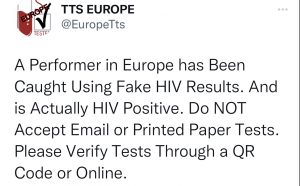From APHSS Blog
1. What the heck is HIPAA?
HIPAA is short for Health Insurance Portability and Accountability Act. It’s a fancy name for the law that protects medical privacy of patients for the records that doctor’s offices and insurance companies maintain. There are numerous safeguard and requirements to make sure that each person has the opportunity to keep their medical records confidential.
2. Do I have a right to know who has received my medical information?
Yes. Absolutely. You have the right to ask most healthcare providers for information on who has received your personal health information. Further, the healthcare provider must provide information about disclosures made to third parties. This is called an “accounting of disclosures.” It must include the date of the disclosure, the name of the person who received the information, what information was disclosed, and the purpose of the disclosure. There are some exceptions for disclosure for treatment, payment, or healthcare operations. HIPAA 45 CFR § 164.528, and California Civil Code §§ 1798.25 and 1798.28
3. What if a clinic or doctor’s office says they will “redact” my records before sending them to some third party?
Redacting is a common legal practice where identifying information is blacked out of documents to help maintain the anonymity and protect the privacy of individuals. Unfortunately, that’s insufficient with regard to HIV test records. If the records convey even “identifying characteristics” of the patient, those records should not be provided to any third party. Identifying characteristics such as gender, the fact that a person performs in adult films, possibly even the dates and locations of where someone tests could identify a performer.
4. What else can I do?
Make sure you document your objections to sharing your information, records, and results. A phone call is not sufficient. Always read any paperwork you sign at a clinic or doctor’s office.
5. Do I need to get an attorney?
No. Not unless the clinic or physician refuses to comply with your instructions.
6. Why should I care? I have nothing to hide?
Remember that this battle is about every performer in the industry, gay and straight. A group hostile to adult production wants to use everyone’s personal medical information to attack the entire industry. Small producers and directors, most of whom are working performers themselves, are the most vulnerable to this assault on production. We are encouraging you to protect your privacy and the privacy of your friends and colleagues.






